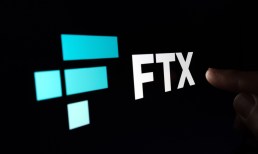The International Monetary Fund (IMF) says decisions like El Salvador’s choice to make bitcoin a legal tender as of Sept. 7 and the adoption of other cryptocurrencies as national currencies is fraught with problems and could destabilize a country’s macroeconomic standing.
“Privately issued crypto-assets like bitcoin come with substantial risks,” IMF warned in a tweet on Saturday (Aug. 28). “Making them equivalent to a national currency is an inadvisable shortcut.”
In a blog post titled “Crypto assets as National Currency? A Step Too Far,” which is linked in the tweet, the IMF said, “Some countries may be tempted by a shortcut: adopting crypto-assets as national currencies. Many are indeed secure, easy to access, and cheap to transact. We believe, however, that in most cases risks and costs outweigh potential benefits … Their value is just too volatile and unrelated to the real economy.”
New digital currency has the potential to provide cheaper and faster payments, enhance financial inclusion, improve payment provider competition and increase cross-border transfers, according to the IMF, “but doing so is not straightforward.”
Related: Former SEC Enforcer Says Watchdogs, Crypto Firms Need Open Dialogue on Oversight
Ashley Ebersole, a Washington-based securities and financial regulatory partner with Bryan Cave Leighton Paisner and a former SEC enforcement lawyer, told Karen Webster in a recent interview there are already laws on the books to regulate cryptocurrencies for everyone’s benefit.
Advertisement: Scroll to Continue
For cryptocurrency or decentralized finance (DeFi) generally to reach its full potential, said Ebersole, “regulators need to figure out what their stance is going to be — and hopefully it’s going to be a more reasonable and accommodative one.”
Ebersole noted that the “Wild West” tenor of the cryptocurrency industry has calmed down since he worked for the SEC from 2015 to 2019.




